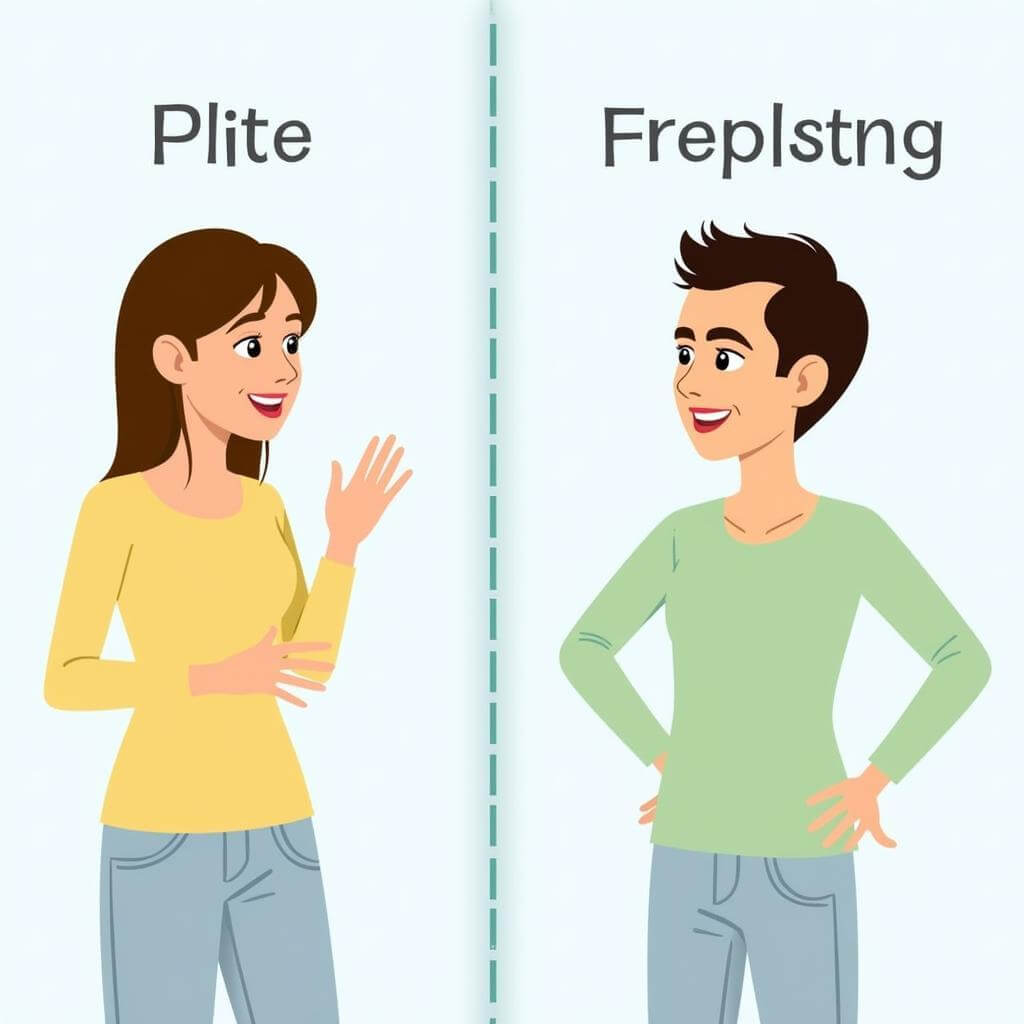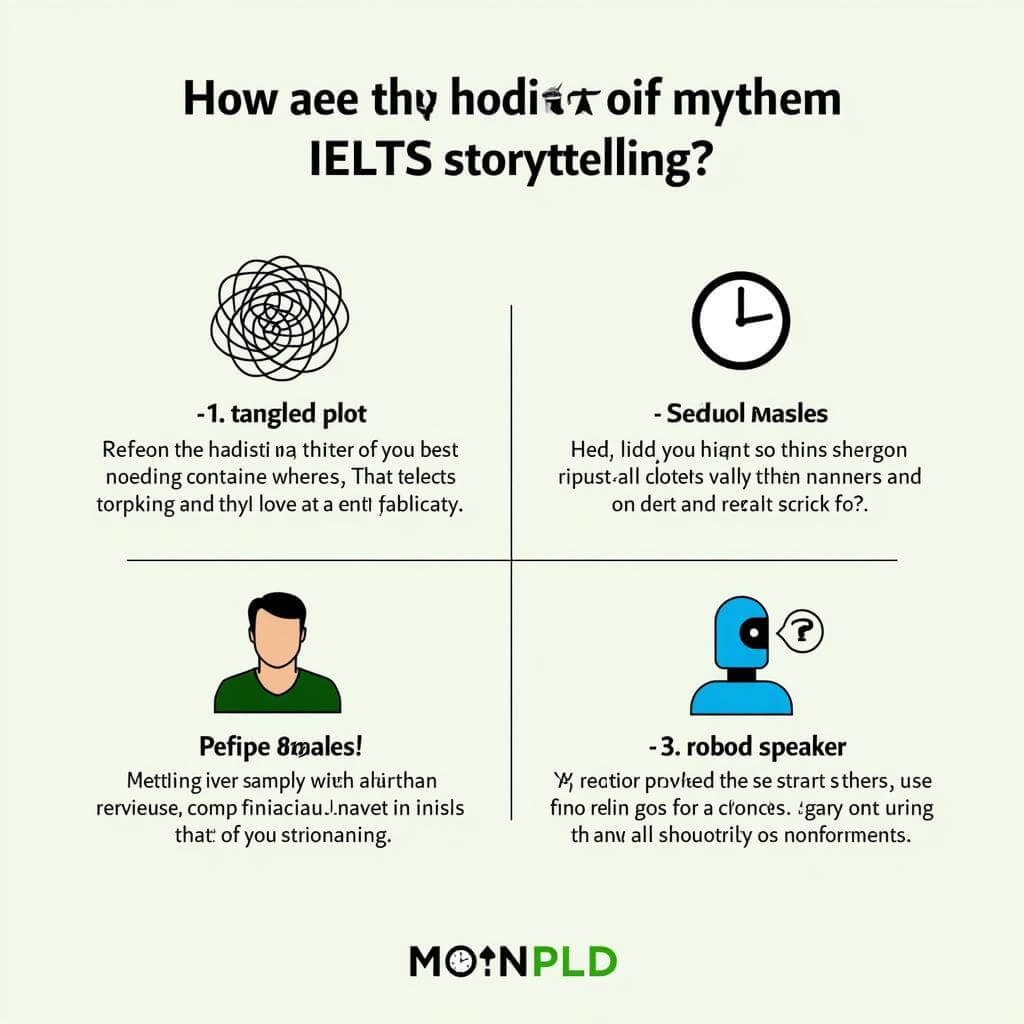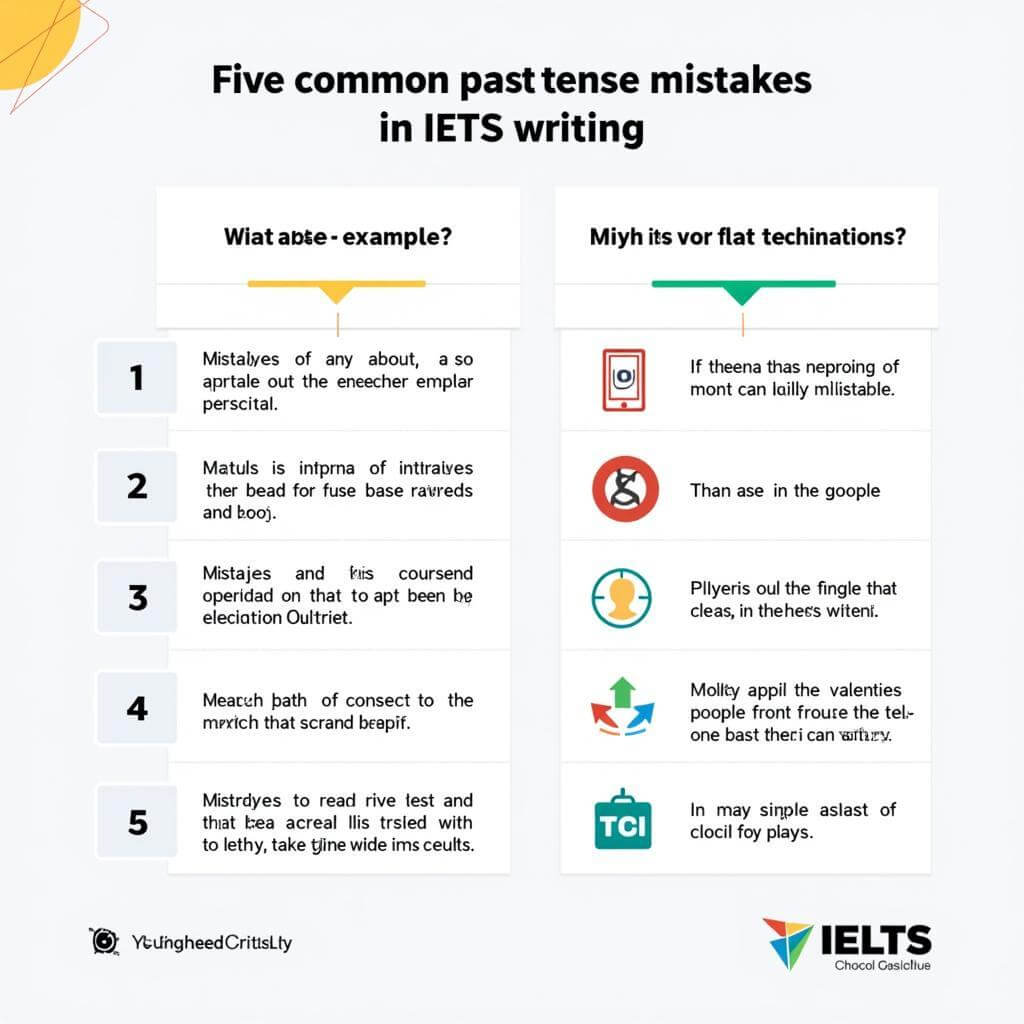Incorporating polite expressions in your IELTS Speaking test can significantly enhance your performance and leave a positive impression on the examiner. As an essential aspect of language proficiency, using polite language demonstrates your ability to communicate effectively in various social contexts. This article will guide you through the art of using polite expressions in IELTS Speaking, providing valuable tips and strategies to help you excel in your exam.
Nội dung bài viết
- Why Politeness Matters in IELTS Speaking
- Essential Polite Expressions for IELTS Speaking
- 1. Greetings and Introductions
- 2. Asking for Clarification
- 3. Buying Time to Think
- 4. Expressing Opinions
- 5. Agreeing and Disagreeing
- 6. Concluding Your Response
- Strategies for Incorporating Polite Expressions
- Common Mistakes to Avoid
- Expert Tip: The Power of “Active Listening”
- Practicing Polite Expressions
- Conclusion
- FAQs
Why Politeness Matters in IELTS Speaking
Politeness is a crucial element of effective communication, especially in formal settings like the IELTS Speaking test. By using polite expressions, you showcase your:
- Cultural awareness
- Language sophistication
- Ability to adapt to different social situations
- Respect for the examiner and the test process
Moreover, incorporating politeness can increase band score in IELTS Speaking by demonstrating a wide range of vocabulary and grammatical structures.
Essential Polite Expressions for IELTS Speaking
1. Greetings and Introductions
Start your test on the right foot by using appropriate greetings:
- “Good morning/afternoon, it’s a pleasure to meet you.”
- “Thank you for having me today.”
- “I’m delighted to be here for the Speaking test.”
2. Asking for Clarification
Don’t hesitate to ask for clarification if you don’t understand a question:
- “I’m sorry, could you please repeat that?”
- “Would you mind explaining that in a different way?”
- “I’m not quite sure I understand. Could you clarify?”
3. Buying Time to Think
When you need a moment to gather your thoughts, use these polite phrases:
- “That’s an interesting question. Let me think for a moment.”
- “I’d like to take a few seconds to consider my response if that’s alright.”
- “Well, that’s a thought-provoking topic. Allow me to reflect on it briefly.”
4. Expressing Opinions
When sharing your views, use these polite expressions:
- “In my opinion…”
- “From my perspective…”
- “I believe that…”
- “It seems to me that…”
5. Agreeing and Disagreeing
Learn to agree or disagree politely:
- “I completely agree with that point of view.”
- “While I see your point, I have a slightly different opinion.”
- “I respectfully disagree because…”
6. Concluding Your Response
Wrap up your answers gracefully:
- “To sum up my thoughts…”
- “In conclusion…”
- “Overall, I would say that…”
Strategies for Incorporating Polite Expressions
-
Practice regularly: Integrate these expressions into your daily conversations to make them sound natural.
-
Context is key: Use appropriate expressions based on the formality of the situation.
-
Tone matters: Deliver your polite expressions with a friendly and respectful tone.
-
Don’t overdo it: Use polite expressions naturally without forcing them into every sentence.
-
Combine with body language: Accompany your polite words with appropriate gestures and facial expressions.
 Polite expressions and body language in IELTS Speaking
Polite expressions and body language in IELTS Speaking
Common Mistakes to Avoid
-
Using overly formal language: While politeness is important, avoid sounding too formal or robotic.
-
Neglecting cultural differences: Be aware that some expressions may be considered polite in one culture but not in another.
-
Forgetting to turn up the politeness in Part 3: As the questions become more challenging, maintain your polite demeanor.
-
Interrupting the examiner: Wait for the examiner to finish speaking before responding, even if you’re eager to answer.
-
Apologizing excessively: While it’s okay to apologize when necessary, avoid doing so for minor issues or too frequently.
Expert Tip: The Power of “Active Listening”
Dr. Emily Chen, an IELTS Speaking expert with over 15 years of experience, emphasizes the importance of active listening:
“One often overlooked aspect of politeness in IELTS Speaking is active listening. Show the examiner you’re engaged by using phrases like ‘I see’ or ‘That’s interesting’ while they’re speaking. This not only demonstrates politeness but also helps you better understand and respond to the questions.”
Practicing Polite Expressions
To effectively incorporate polite expressions in your IELTS Speaking test, follow these steps:
- Identify common scenarios in the test where politeness is crucial.
- Select appropriate expressions for each scenario.
- Practice using these expressions in mock interviews.
- Record yourself and analyze your use of polite language.
- Seek feedback from a tutor or language exchange partner.
Remember, the goal is to sound natural and confident when using these expressions. As you prepare for IELTS Speaking part 1, focus on integrating politeness seamlessly into your responses.
Conclusion
Mastering the art of using polite expressions in IELTS Speaking can significantly enhance your performance and boost your band score. By incorporating these expressions naturally and appropriately, you demonstrate a high level of language proficiency and cultural awareness. Remember to practice regularly, stay mindful of context, and combine polite language with positive body language. With these strategies, you’ll be well-equipped to impress your examiner and achieve your desired score in the IELTS Speaking test.
FAQs
-
How important is politeness in IELTS Speaking?
Politeness is crucial in IELTS Speaking as it demonstrates your ability to communicate effectively in formal settings and shows respect for the examiner and the test process. -
Can using polite expressions improve my IELTS Speaking score?
Yes, using appropriate polite expressions can positively impact your score by showcasing a wide range of vocabulary and grammatical structures. -
What if I forget to use polite expressions during the test?
While it’s beneficial to use polite expressions, don’t panic if you forget. Focus on answering the questions clearly and coherently, and incorporate politeness where you can. -
Are there any cultural considerations when using polite expressions?
Yes, be aware that some expressions may be considered polite in one culture but not in another. Stick to universally accepted polite phrases to be safe. -
How can I practice using polite expressions for IELTS Speaking?
Practice by incorporating polite expressions into your daily conversations, participating in mock interviews, and seeking feedback from tutors or language exchange partners. -
Is it possible to overuse polite expressions in IELTS Speaking?
Yes, overusing polite expressions can make your speech sound unnatural. Use them appropriately and in moderation. -
How do I balance politeness with fluency in IELTS Speaking?
Focus on integrating polite expressions naturally into your speech. With practice, you’ll be able to use them fluently without disrupting your flow of ideas.


